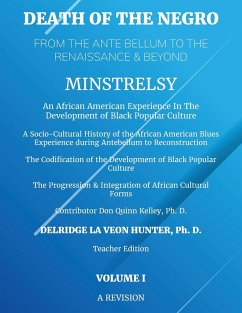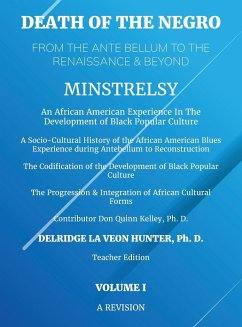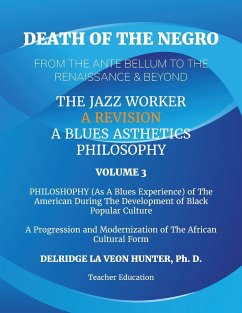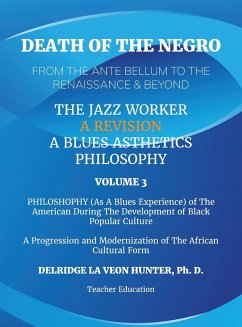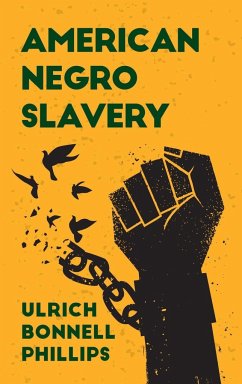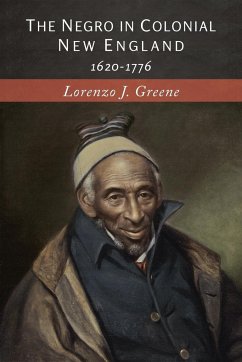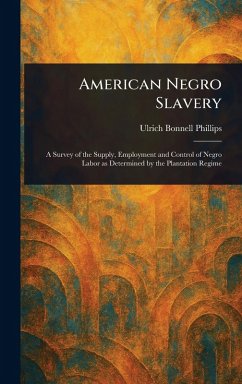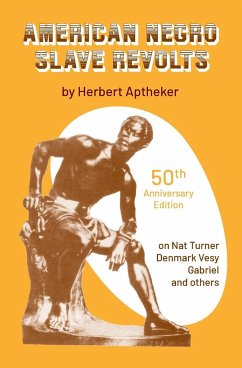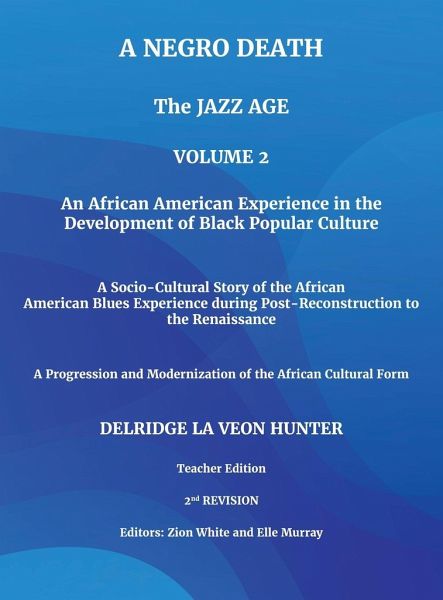
A Negro Death
The Jazz Age: An African American Experience in the Development of Black Popular Culture: A Socio-Cultural Story of the African American Blues Experience during Post-Reconstruction to the Renaissance: A Progression and Modernization of the
Versandkostenfrei!
Versandfertig in 1-2 Wochen
21,99 €
inkl. MwSt.
Weitere Ausgaben:

PAYBACK Punkte
11 °P sammeln!
With the great Liberation War ending in 1865 C.E., 'slave narratives' immediately became the source of information for scholars who studied Black Life and Culture. After William Allen, et al, published the "Slave Songs of The United States," Scholars searched for narratives to uncover how the slave lived. The purposes were usually noble in chat they were truly interested in black popular culture. The result of this interest was, many allowed the slaves to tell the story of suffering and depravation, i.e., the narrative, without the interference of another voice. For many scholars the intent wa...
With the great Liberation War ending in 1865 C.E., 'slave narratives' immediately became the source of information for scholars who studied Black Life and Culture. After William Allen, et al, published the "Slave Songs of The United States," Scholars searched for narratives to uncover how the slave lived. The purposes were usually noble in chat they were truly interested in black popular culture. The result of this interest was, many allowed the slaves to tell the story of suffering and depravation, i.e., the narrative, without the interference of another voice. For many scholars the intent was to speak to some moral issues affecting the treatment of the slave. The political economy that depended on agricultural production and the use of slave labor produced the most ideal time and space for the evolution of a musical form Paul Laurence Dunbar will promote 1890 book series of poems. Although Dunbar has already produced the musical form of Blues-In-Print with his lyrics entitled, "Blue, Dirge, Lament, e.g., "Pickin' off De Cotton", Ware and W.C Handy will be credited with giving "Blues" its name. What makes this information so vital, is all of the preconditions existed for "Devil's Songs" [Blues form] to grow, expand and evolve during this epoch. Africans as people in bondage occupied the least favored position. As the social commentator the lyric poet's role was to analyze the system of slavery that kept the African Oppressed. The audience and support were there among the People in bondage. As the reader shall see, this support was later challenged on in the development of blues. By then, however, the lyric poet had already set stage for the creation of what the most favored will call 'Black Music'. What is Black Music? Those styles, genres, and forms that owe their existence to t he people enslaved as captives within the Americas. How did the development occur? The system of bondage was so complete and vast lyric poets were given many settings in which to materialize their works. The African cultural sensibilities as expressed through song and suicide, thus endangering the social continuity of the African. As we are told, the Negro lived within a culture of poverty as the salve and through denial suffered a poverty of culture. As a slave, the Negro was supposed to exist without culture. This was their poverty of culture. As a slave, the Negro live in an assigned position. That position dictated the conditions under which suffering was permitted. The Negro had no other place to call home. There was no Negro land as a place of origin. Africa renamed many did not exist, except as a faraway place of origin that allowed is inhabitants to be sold into bondage. Bondage was forever.





